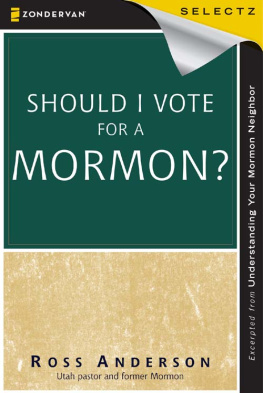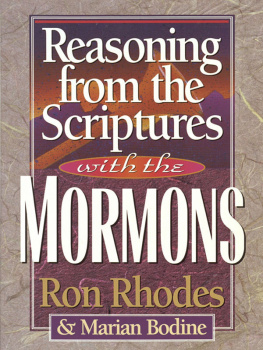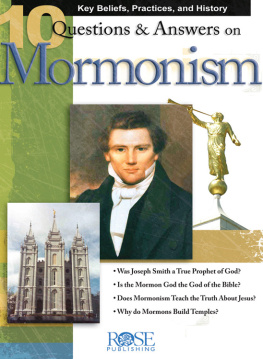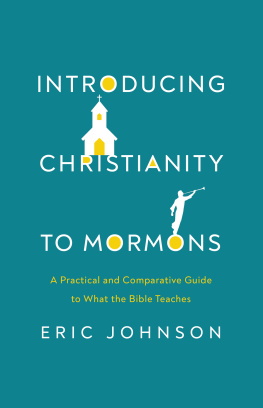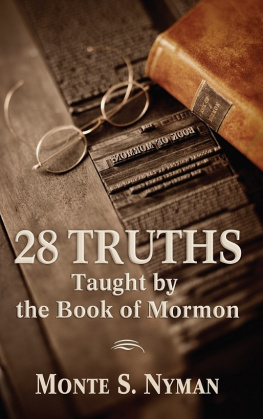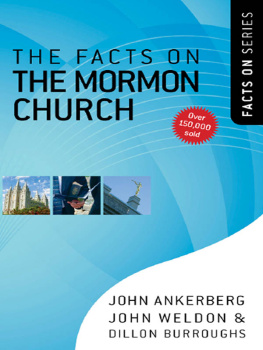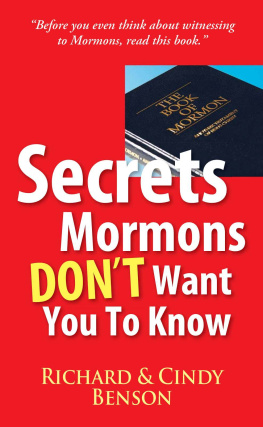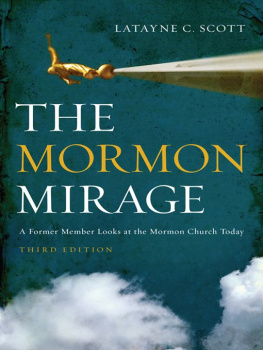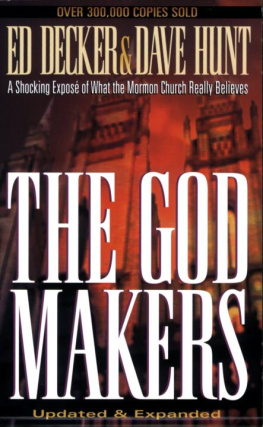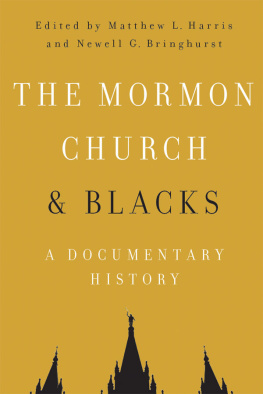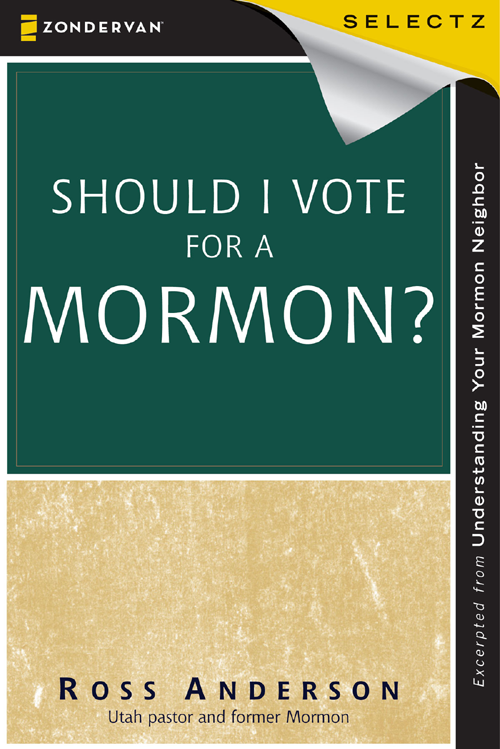In the first decades of the twenty-first century, the Church of Jesus Christ of Latter-day Saints and its members have emerged into the national spotlight. Media from around the world featured the LDS Church in stories about the 2002 Winter Olympics. In 2008, the Latter-day Saints played a prominent role in Californias Proposition 8 vote over homosexual marriage. Church President Thomas S. Monson was named the most influential eighty-year-old in America. Mitt Romney has run for President twice, with the outcome of his second candidacy still in question at the publication of this piece. Harry Reid became the Senate majority leader. David Archuleta and Ken Jennings won fame on TV shows American Idol and Jeopardy, respectively. Glenn Beck gained a national audience as a political commentator. Stephanie Meyer sold millions of vampire novels. As the fourth largest denomination in the United Statesand the richest per capitathe LDS Church has become a mainstream force, despite making up only about 2 percent of the American adult population.
Latter-day Saints dont just live in Utah anymore. By 1990 about 30 percent of U.S. Mormons lived outside the western states, due in part to increased mobility in America after World War II as well as ongoing missionary activity. Many Americans have encountered Mormonism through familiar images like missionaries on bicycles, the Mormon Tabernacle Choir, or the Mormons tightly knit families and clean lives. Almost half of all Americans actually know an active or devout Latter-day Saint. Most of us (71 percent) have seen Mormon ads on TV, and almost two-thirds of Americans have been approached by LDS missionaries at some time.
The Mormon people are very much like other Americans. They are about average in a wide variety of family attitudes and behaviors, overall happiness, marital happiness, and self-esteem. They are somewhat better educated, a bit more politically conservative, and slightly more favorable to minority rights and civil rights than typical Americans.
Yet, in other areas, Mormons are measurably different. They sacrifice significantly more than most Americans for their religious beliefs: they go to church more, give more, and serve more. They are more likely to be white. They have a lower mortality rate from cancer and cardiovascular disease. Of course, there are also major theological differences between Mormonism and the traditional forms of Christianity to which most Christians in America subscribe.
Some facets of Latter-day Saint life appear strange to outsiders. The private nature of temple worship, which is highly sacred to Mormons, conveys a secretive image. The public expresses some suspicion and fear about whether Latter-day Saints will use their organizational abilities, wealth, and political power to manipulate society for their religious goals. Some people are antagonized by the exclusivist claims of the LDS Church, which claims to be the only church on earth with the authority to act or speak for God. Americans are also confused about the relationship of the LDS Church to its polygamous history and to contemporary splinter groups.
The purpose of this short ebook is, first, to provide some background on Mormon culture, second, to tackle the questions Christians often ask about whether Mormons are Christians or if Mormonism should be considered a cult, and, finally, to provide a careful but clear answer as to whether a Christian can in good conscience vote for a Mormon political candidate.
To be Mormon is far more than being a member of a particular church. Mormonism is an all-encompassing way of life. One prominent LDS scholar observes that Mormons still think of themselves as a people as much as a church. Like Islam, Mormonism is not merely a set of beliefs but a complete identity. To belong to the LDS community entails a deep commitment to the shared customs, values, and lifestyle of the Latter-day Saint culture.
When I speak of culture, I mean the particular ways of thinking, speaking, and living that are shared by people with a common past and identity. People who live in the United States partake of a unique culture that is birthed from our common identity as Americans. Even within America, smaller religious and ethnic groups have subcultures that are distinct from the larger whole. We dont learn our culture consciously but absorb it simply by being around other members of our group. Based on common beliefs and worldview, the Mormon culturelike any othertakes shape in patterns of language, in folklore, in organizational structures, in buildings and artifacts, in forms of art, in ritual and other shared experiences, and in expectations of how people will act.
Every culture expresses itself in unique vocabulary and language patterns. Mormons pray in a distinctive style, using common jargon and intonation. As John Sorenson notes, Thousands of words, phrases, names and stylistic features have peculiar LDS significance, including common LDS euphemisms (Oh my heck!), words that describe LDS life (ward or endowment), and phrases that describe core features of the LDS worldview (the pre-existence or second estate).
Every culture expresses itself in ritual. Latter-day Saint beliefs take shape through the words and actions of common rituals such as baptism, anointing the sick, priesthood ordination, the intricate rites of the temple ordinances, and unique LDS death and burial customs.
Mormon culture reflects a strong value of music, drama, and dance. Mormonisms rich musical history includes the value of musical training in the home and traditional forms of sacred music using piano, organ, and choirs. The dominant form of drama in the LDS world is the pageant, like the Hill Cumorah Pageant, an outdoor spectacle that proclaims the themes of Mormon history and scripture in a tone of triumphant celebration. A small LDS cinematic industry produces films that depict the great stories of Mormonism or poke fun at LDS cultural quirks. Social dancing has always been part of Mormon social life, following precedents set by its earliest leaders. Public dance festivals are also popular.
Mormonism has a rich folklore. The most common folk stories reflect themes that Latter-day Saints find most important, like the pioneer past. Mormon folklore also encourages faithfulness by rooting the Saints in a cosmic struggle between good and evil.
Latter-day Saints express their underlying values through physical objects and symbols, such as the image of the Salt Lake Temple, the beehive, and the angel Moroni. They use art to illustrate historical events and religious stories central to their message. One of the most common themes in LDS art is the First Vision of Joseph Smith, which began his prophetic mission. Mass-produced consumer objects, such as Book of Mormon action toys and Mormon-themed T-shirts, reinforce the Mormon cultural identity.
As with any group, these various cultural expressions serve to identify insiders versus outsiders. One example is the popular CTR ring. CTR stands for Choose the Right, a theme reinforced in the LDS childrens program. Intended as a reminder to make good moral choices, CTR rings make Latter-day Saints instantly recognizable to each other, creating a bond of common identity.
A number of Latter-day Saint customs have a similar role as cultural boundary markers. The Word of Wisdom, which prohibits alcohol, coffee, and tobacco, identifies Mormons to outsiders and communicates ones standing inside the LDS community. Many Saints hang photographs of a temple, or of the current LDS Church President, on the walls of their homes. Even wearing gear from Brigham Young University identifies people as part of the group.

